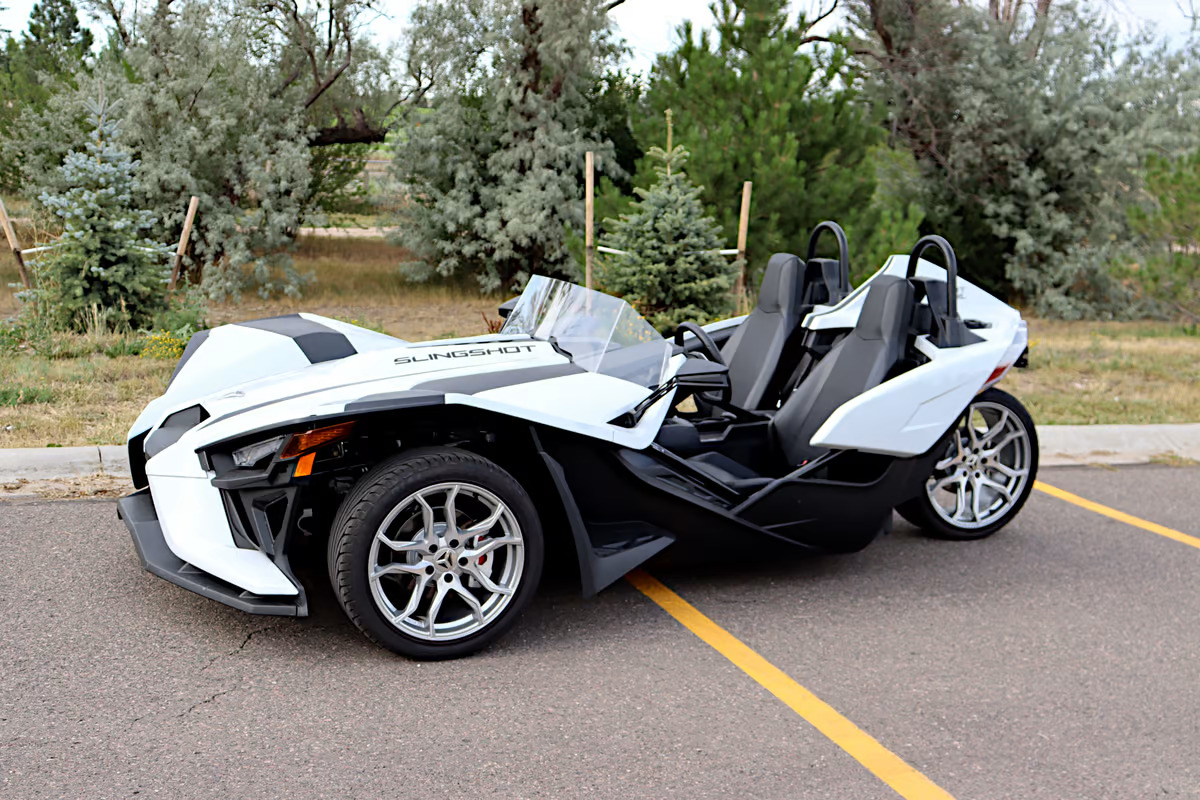 The Polaris Slingshot is a three-wheeled, two-seat roadster of pure fun. Aaron Turpen / New Atlas View gallery – 7 images
The Polaris Slingshot is a three-wheeled, two-seat roadster of pure fun. Aaron Turpen / New Atlas View gallery – 7 images
The 2022 Polaris Slingshot doesn’t change much from the 2021 model, which introduced paddle shifters and a few other simple improvements to the vehicle. Our test model this time, however, was a five-speed manual transmission instead of the automatic. And we found it to be more fun than any other rendition so far.
At a Glance
- Fears over moving a hand from the wheel, at speed, to change gears were unfounded.
- Tons of fun in a vehicle that fills a role motorcycles cannot.
- All of the downers of an open roadster-style two-seater are present.
- Packs up to 203 horsepower and weighs under 1,700 lb (771 kg).
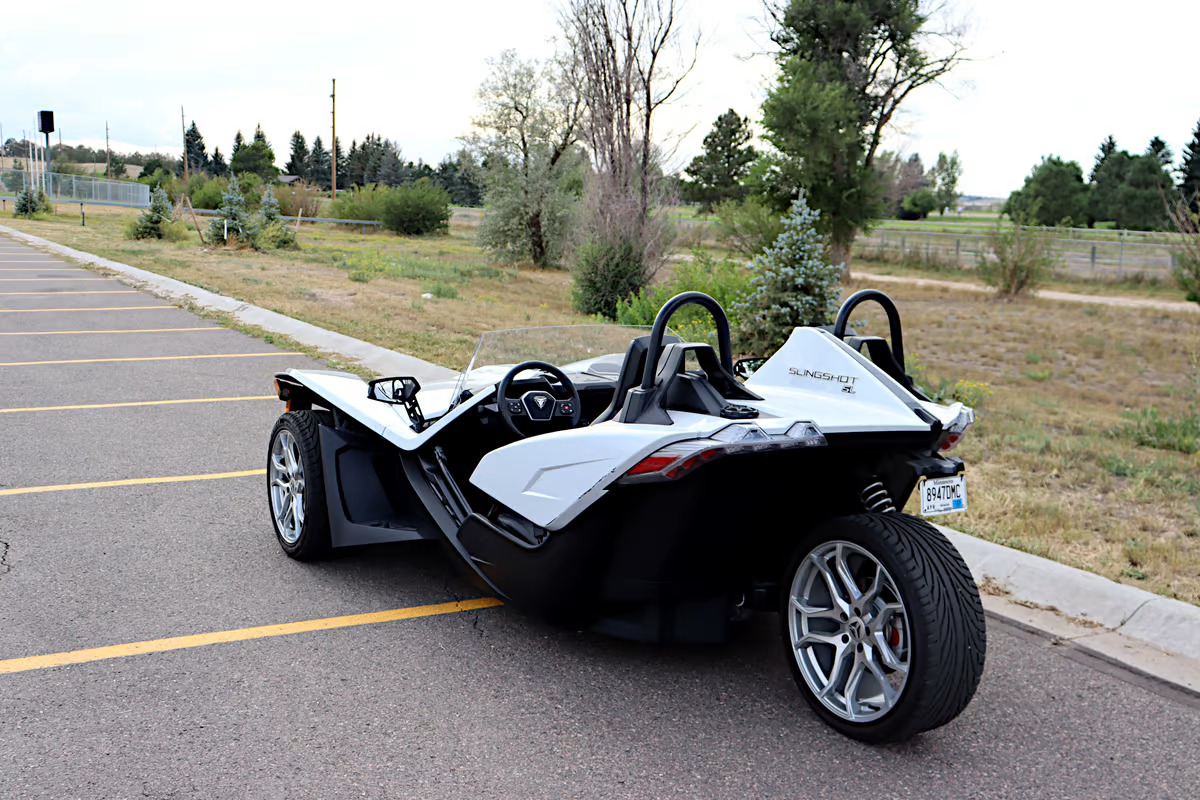
The Slingshot is a tadpole-style three-wheeler that is considered an autocycle by the US government. This means it has the safety requirements of a motorcycle, but has the licensing requirements of a regular car. So while you should wear a helmet, you don’t need to get a motorcycle endorsement to drive it in most states. We recommend a full-face helmet, by the way, as you will get bugs and rocks in your face otherwise.
Powered by a Polaris-made 2.0-liter four-cylinder engine, which can rev up to 8,500 rpm, the Slingshot produces 180 horsepower (134 kW) in its lower renditions and 203 hp (151 kW) in its upper R-labeled performance models. Even without the added HP, though, the Slingshot is more fun than a box of monkeys. Its 120 lb-ft (163 Nm) of torque in the lower-end models, like the one we drove, comes early in the band and stays for quite a while through the tachometer. Peak horsepower comes at much higher rpm levels, but that’s when it’s needed anyway. All of the power of the Polaris Slingshot runs through the rear wheel, which is belt-driven for added good times.
The five-speed manual transmission shifts like a car’s transmission and includes synchromesh, so it’s simple and reliably shifts without fuss. That adds a lot of control for the driver, which aids in safely getting through the hairiest points of driving. Those hairy points are always traffic, because nothing lets you know how terrible other drivers can be than being exposed in an open cockpit with no doors. Add in that the Slingshot is almost assuredly going to get a lot of attention from said drivers (a good and a bad thing), and it’s easy to understand why keeping revs at usable levels is a good idea.
Once on the more open road, however, this Polaris is a blast to drive. Slinging through the gears, we managed a 100-ish mile (160-km) road trip to Colorado and a return trip afterwards that was thrilling and more comfortable than we’d expected. There’s no climate control, other than airflow into and around the open cabin, and nothing stopping road noise and engine sounds other than a helmet. And it’s thrilling on all fronts. The manual transmission also meant that slowing down for every podunk town we passed through on the highway was something to look forward to, giving a break from wheel gripping and gliding.
So we have to officially retract our assessment of previous Polaris Slingshot reviews wherein we said “… it’s easy to get frazzled and have no interest in taking a hand off the wheel” to shift. We still think that those not interested in manually shifting the gears will be happy with the paddle shifters on the other transmission, but we found that shifting gears ourselves added a lot to the driving fun of the already awesome Slingshot.
Plus, it makes it easier to get the back end squirrely when you run a corner. The Slingshot isn’t a drift machine, given its dynamics, but it sure does make sliding the rear around a corner easy to pull off (if you’re on a track, of course).
For performance junkies, here are some numbers: the Slingshot’s R model can launch to 60 mph (92 km/h) in 4.9 seconds, per Polaris. The lower-end model we drove averaged 5.8 seconds in our attempts. We didn’t do rolling starts, which likely would improve that number. Another point of interest is the steering, which is assisted, but only lightly so. It’s also precise, giving every gesture on the wheel a translation at the tires. Being low and lightweight, the dynamics of the Slingshot are great, with a short wheelbase and wide wheel track up front. There is no lean during cornering, just hard-coiled body movement, akin to most track-ready sports cars.
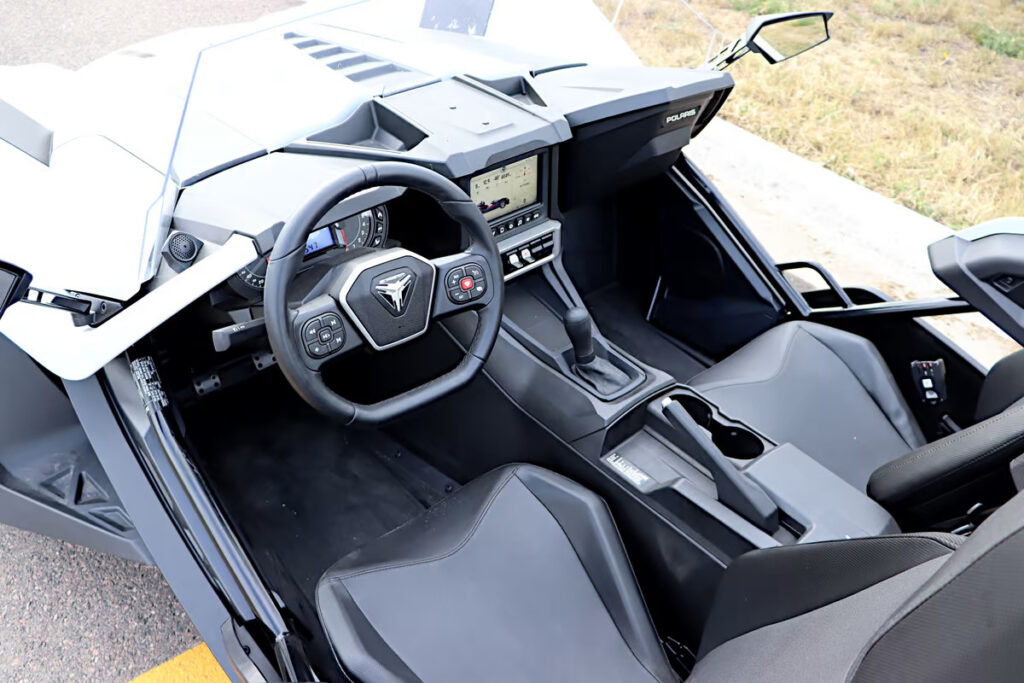
And for the inevitable “this should be electric” crowd, the question is: really? Should it? Because going to batteries with the Slingshot would fundamentally change its feel and appeal. The noise factor would be gone, sure, but so would a lot of the learning curve to nuance the engine, row the gears, and feel the vehicle as a whole. It would be quieter, yes, and the radio might make more sense with that, but the speed would have to be toned down because instant torque would almost assuredly mean loss of control. And it would weigh more. Far more. 9.8 gallons (37.1 L) of gasoline doesn’t weigh much compared to the equivalent 200-mile-range (322-km) batteries that would be needed. That weight would fundamentally change dynamics. And probably not in a good way.
As it is, the 2022 Polaris Slingshot is a load of fun to drive and bypasses many of the concerns some would-be motorcyclists might have. It’s more fun on three wheels than just about any alternative. Pricing starts at US$20,799.
Product Page: 2022 Polaris Slingshot












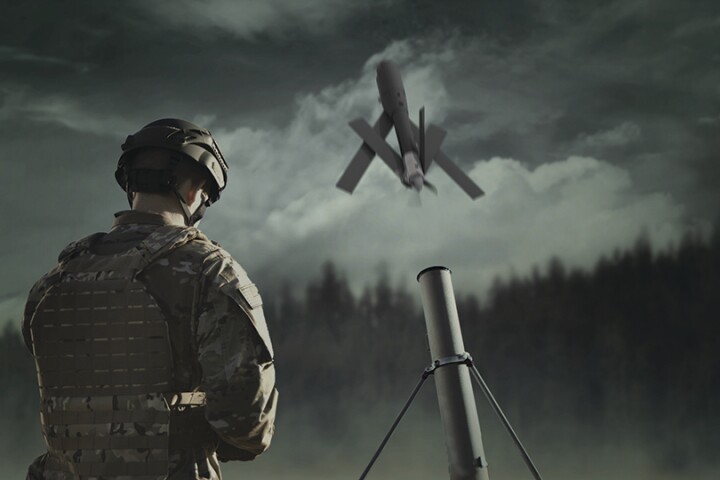
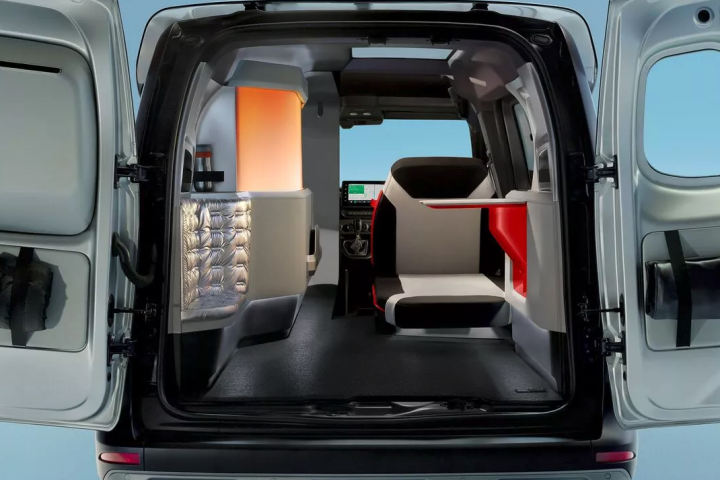

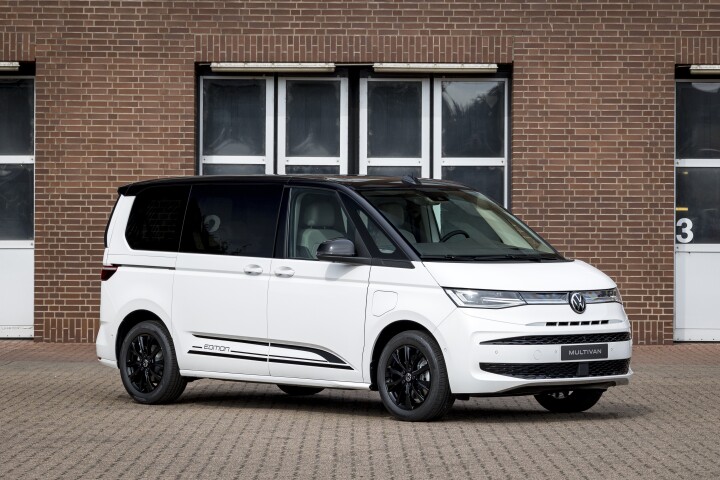

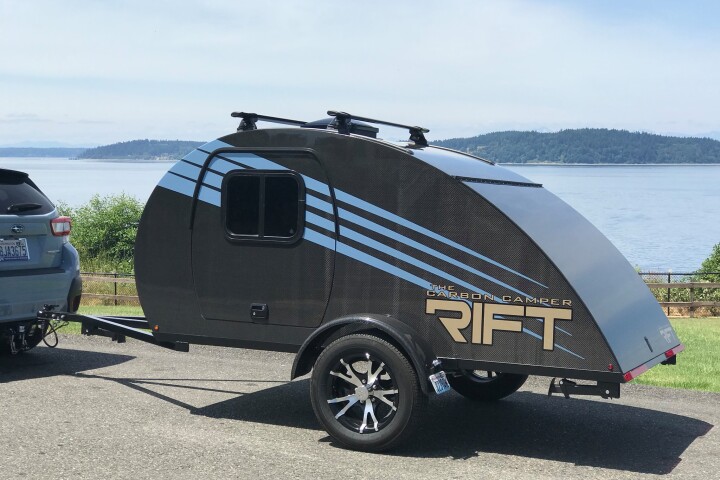


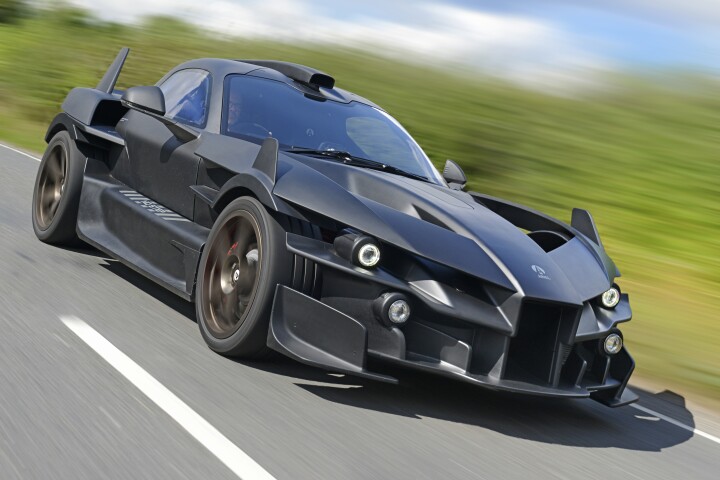


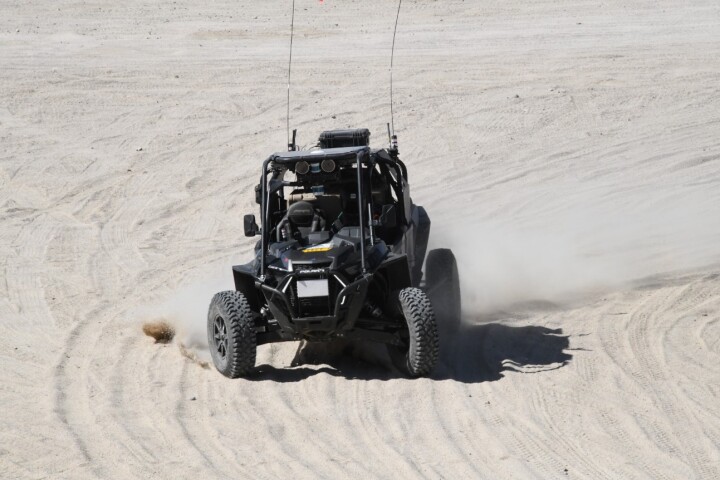
Please keep comments to less than 150 words. No abusive material or spam will be published.
–